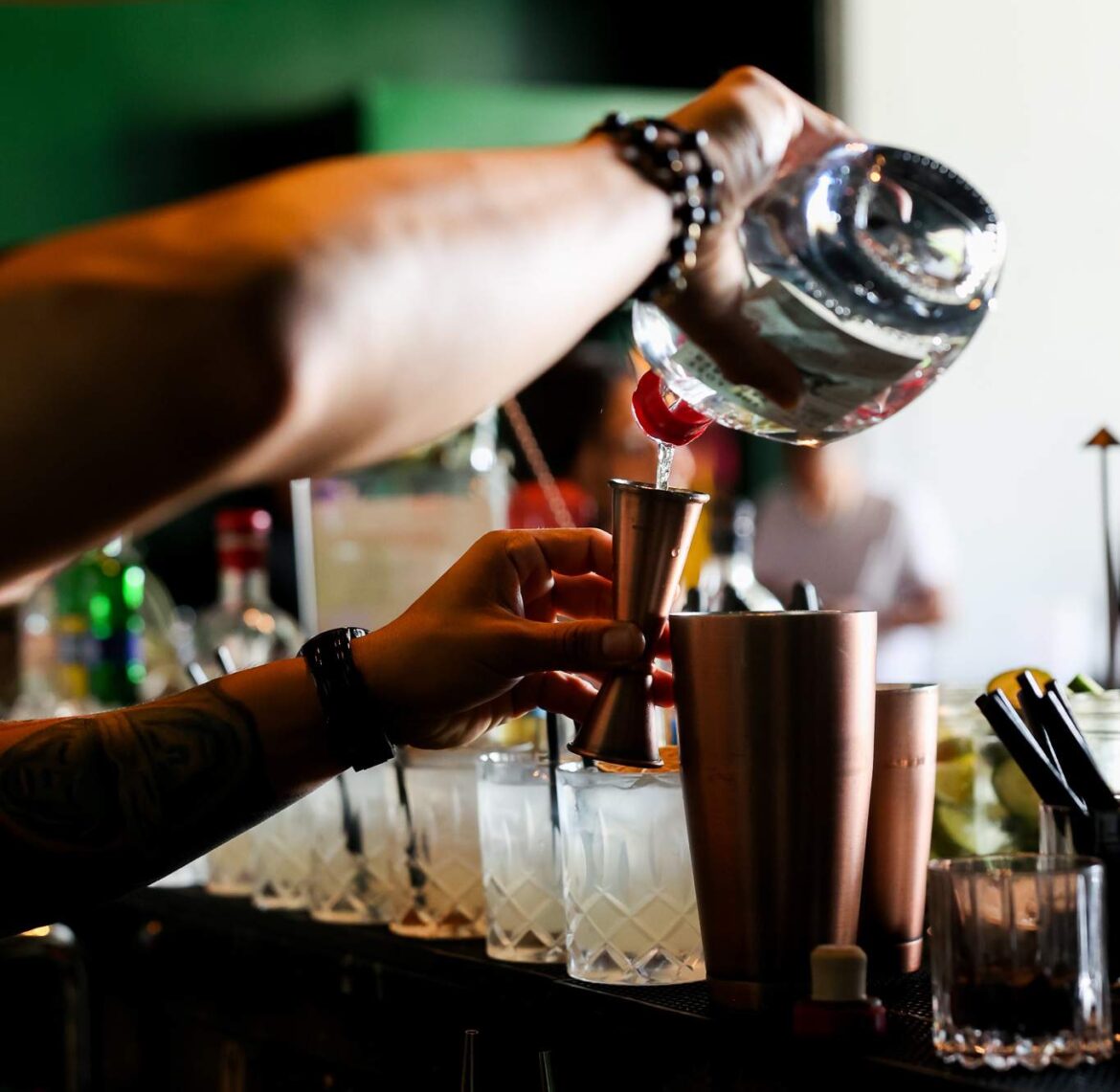Miami hosts numerous events throughout the year, and if you wish to earn additional income bartending at these events, it’s crucial to be prepared for any opportunity that comes your way. It’s always important to make a good first impression if you aspire to secure repeat business.
Bartending is an exciting and rewarding profession that requires a unique set of skills and tools. When it comes to bartending at events, there are some additional considerations that every bartender needs to keep in mind. Whether you’re working a small private party or a large corporate event, the same basic principles apply. In this article, we’ll explore the essential tools and skills every bartender needs to work events.
Essential skills for bartenders working in events
There are several essential skills that every bartender needs to have when working at events. First and foremost, you’ll need to have excellent customer service skills. This means being friendly, approachable, and able to handle any customer complaints or issues that arise.
You’ll also need to have excellent time management skills. When you’re working at an event, time is of the essence, and you’ll need to be able to work quickly and efficiently to keep up with demand. This means being able to multitask, prioritize tasks, and manage your time effectively.
Another essential skill for bartenders working at events is communication. You’ll need to be able to communicate effectively with other staff members, event coordinators, and customers. This means being able to listen actively, ask the right questions, and convey information clearly and concisely.
Must-have bar tools for event bartenders
In addition to having the right skills, every bartender working at events needs to have the right tools. There are several essential bar tools that you’ll need to have on hand, including a cocktail shaker, jigger, strainer, and bar spoon.
A cocktail shaker is essential for making mixed drinks and cocktails quickly and efficiently. A jigger is a measuring tool that ensures that you’re using the right amount of each ingredient in your drinks. A strainer is used to remove any ice or pulp from your drinks, while a bar spoon is used to stir ingredients together.
Other essential tools that every bartender should have include a bottle opener, corkscrew, and ice bucket. These tools will allow you to quickly and efficiently open bottles of beer and wine, as well as keep your ice cold and readily available.
Setting up the bar at events
Setting up the bar at an event is a critical part of ensuring that everything runs smoothly. If you’re working at a private party or small event, you may need to bring your own bar with you. This means that you’ll need to have a portable bar that is easy to transport and set up.
If you’re working at a larger event, the bar may already be set up for you. In this case, you’ll need to make sure that everything is stocked and ready to go before the event begins. This means making sure that you have enough ice, mixers, and garnishes on hand to last throughout the night. Remember to be on time for set up.
 Preparing for an event as a bartender
Preparing for an event as a bartender
Preparing for an event as a bartender involves more than just packing your bar tools and heading out the door. You’ll need to make sure that you’re dressed appropriately for the event and that you have all of the necessary supplies on hand.
You’ll also need to make sure that you’re mentally prepared for the event. This means taking the time to review the drink menu, brush up on your mixing skills, and mentally prepare yourself for the demands of the job.
Hospitality and customer service skills for bartenders
Hospitality and customer service skills are essential for bartenders working at events. You’ll need to be able to make customers feel welcome and comfortable, even in a crowded and fast-paced environment.
This means being able to greet customers with a smile, engage them in conversation, and make sure that they’re enjoying their drinks. You’ll also need to be able to handle any customer complaints or issues that arise in a professional and courteous manner.
Collaborating with event coordinators and other staff
Collaborating with event coordinators and other staff members is an essential part of working at events. You’ll need to be able to communicate effectively with the event coordinator to ensure that everything is running smoothly.
You’ll also need to be able to work collaboratively with other staff members, such as servers and bussers, to ensure that everyone is on the same page. This means being able to communicate effectively, delegate tasks, and work as a team to provide the best possible service to customers.
Courses and training for event bartending and hospitality
If you’re interested in pursuing a career in event bartending or hospitality, there are several courses and training programs that can help you develop the skills and knowledge you need to succeed.
These programs can provide you with hands-on training in mixology, customer service, and event management, as well as help you develop the essential skills you need to work in this fast-paced and rewarding profession.
The certifications required to work as a bartender in events can vary depending on the specific location and the regulations in place. Here are some common certifications that may be required or beneficial for event bartending:
- Responsible Alcohol Service Certification: Many jurisdictions require bartenders to hold a responsible alcohol service certification. Examples of such certifications include TIPS (Training for Intervention ProcedureS), ServSafe Alcohol, or the Beverage Alcohol Resource (BAR) Certification. These certifications demonstrate your knowledge of responsible alcohol service, including identifying intoxication signs, dealing with difficult situations, and understanding legal requirements.
- Food Handler’s Permit: In some regions, bartenders who handle and serve food alongside beverages may be required to obtain a food handler’s permit. This certification ensures that you understand proper food handling, storage, and safety practices to prevent contamination and maintain hygiene standards.
- State or Local Licensing: Depending on the laws and regulations of your area, you may need to obtain a state or local bartender’s license or permit. These licenses typically require you to meet certain age requirements and complete a training program or pass an exam to demonstrate your knowledge of alcohol laws, responsible service, and other related topics.
It’s important to research the specific requirements of the location where you intend to work as an event bartender, as regulations can vary significantly. Contact local authorities, such as liquor control boards or health departments, to obtain accurate and up-to-date information on the certifications needed in your area.
Additionally, even if specific certifications are not mandatory, having relevant training and certifications can enhance your resume, demonstrate your commitment to professionalism, and increase your chances of securing bartending opportunities in events.
Bartending at events is a challenging and rewarding profession that requires a unique set of skills and tools. Whether you’re working a small private party or a large corporate event, the same basic principles apply.
By developing the essential skills and investing in the right tools, you can set yourself up for success as a bartender at events. With a focus on customer service, time management, and communication, you can provide the best possible service to customers and help ensure that every event is a success.


 Preparing for an event as a bartender
Preparing for an event as a bartender